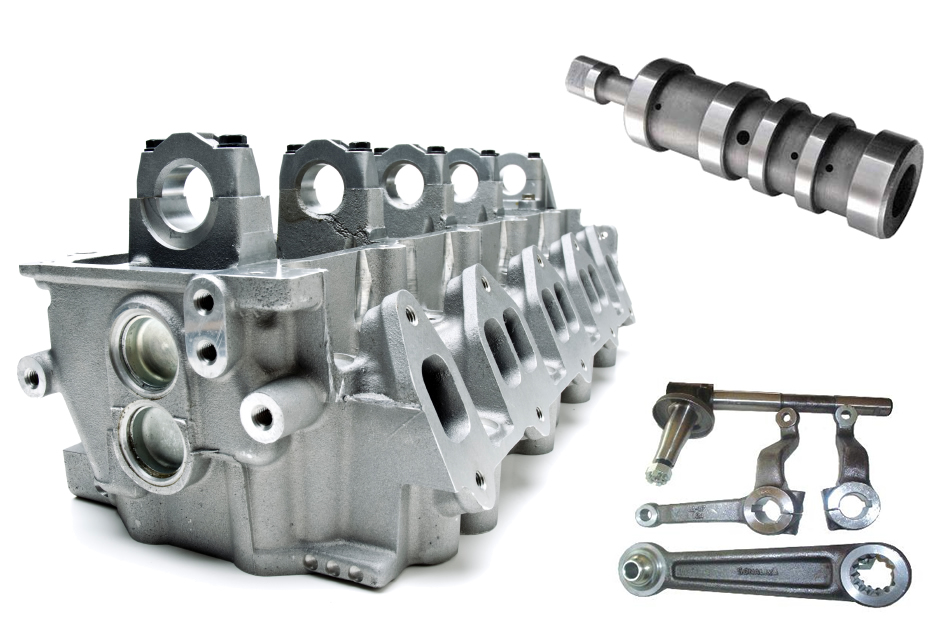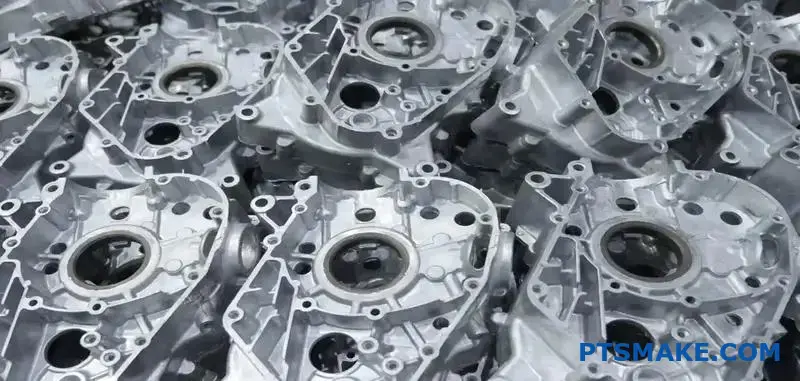Precision aluminum casting and Aluminum Foundry collaboration for next-generation results
Wiki Article
The Function of Light Weight Aluminum Foundries ahead of time Lightweight Production Solutions
Light weight aluminum shops considerably contribute to the evolution of light-weight manufacturing options. Their ingenious spreading innovations yield high-strength, light-weight components necessary for industries such as auto and aerospace. This development not only improves item performance but likewise promotes sustainability with making use of recycled materials. As these foundries adjust to emerging techniques and innovations, they lead the means for future growths in manufacturing efficiency and environmental responsibility. What exists ahead in this transformative trip?The Benefits of Lightweight Products in Production
As markets progressively look for performance and sustainability, the adoption of light-weight products in manufacturing has arised as an important approach - Precision aluminum casting. These materials, specifically aluminum and compounds, supply numerous advantages that improve production procedures and item performance. Mostly, their minimized weight adds to lower power usage throughout transportation and procedure, resulting in considerable price savingsLight-weight products facilitate the layout of more complicated geometries, permitting for greater development in product growth. This versatility often leads to enhanced capability and performance, satisfying the progressing needs of modern customers.
Additionally, using light-weight products can boost the longevity of items due to their resistance to rust and fatigue. This durability not just lowers upkeep costs yet additionally supports sustainability campaigns, as longer-lasting items contribute to much less waste. To summarize, the benefits of light-weight materials are essential in driving effectiveness, technology, and environmental duty in manufacturing.
Advancements in Light Weight Aluminum Casting Technologies
Current advancements in light weight aluminum casting technologies are transforming the production landscape, especially in the production of light-weight parts. Technologies such as high-pressure die spreading and vacuum cleaner die casting have actually greatly enhanced the accuracy and surface area coating of aluminum components - Aluminum Foundry. These methods enable the production of complicated geometries while lessening material waste and enhancing mechanical homes
In addition, the implementation of real-time monitoring systems ensures quality assurance throughout the spreading procedure, resulting in even more regular product results. Collectively, these advancements not only enhance the efficiency of aluminum parts yet also support the industry's change towards even more sustainable production practices.
Applications of Light Weight Aluminum Elements in Different Industries
While light weight aluminum parts have long been made use of in various sectors, their versatility and lightweight homes continue to drive ingenious applications throughout markets such as automobile, aerospace, and construction. In the auto sector, aluminum is increasingly utilized for engine blocks, wheels, and body panels, boosting fuel effectiveness and performance. Aerospace producers leverage aluminum for aircraft frameworks and elements, utilizing on its strength-to-weight proportion to boost gas economy and payload ability.In the building field, light weight aluminum is favored for window frameworks, roof, and structural aspects, offering longevity and resistance to rust while lowering general building weight. In addition, the electric and electronic devices industries profit from aluminum's conductivity and lightweight nature, using it in wiring, units, and heat sinks. These varied applications highlight the crucial function of aluminum elements, which not just satisfy sector demands but additionally add to innovations in product design and capability across multiple areas.
Sustainability and Energy Effectiveness in Light Weight Aluminum Foundries
The aluminum factory sector plays a vital role in advertising sustainability and energy performance, specifically as demand for light-weight components remains to expand across various sectors. Foundries are significantly taking on ecologically pleasant methods, such as making use of recycled aluminum, which significantly decreases power consumption and greenhouse gas discharges contrasted to key aluminum manufacturing.Advancements in casting innovations enhance power performance by maximizing the melting processes and minimizing waste. Techniques like die casting and financial investment spreading enable precise product use, lessening excess and scrap.
Additionally, many foundries are spending in renewable resource resources to power procedures, additionally lowering their carbon impact. Carrying out energy monitoring systems makes it possible for shops to keep track of and improve power use, ensuring they operate at peak effectiveness.

Future Patterns in Lightweight Production Solutions
Just how will arising technologies shape the future of lightweight production remedies? Technologies such as advanced materials, automation, and additive production are set to redefine production processes. The assimilation of clever manufacturing technologies, consisting of the Net of Things (IoT) and expert system (AI), will enable real-time tracking and optimization, improving performance and lowering waste.
As sustainability remains to be a critical issue, light-weight options will increasingly concentrate on recycling and reusing materials, lining up with circular economic situation concepts. This evolution in light-weight production will certainly not only enhance item efficiency however additionally add to aluminum casting ecological objectives, making sure that the industry stays competitive in a swiftly changing market landscape.
Often Asked Concerns
Exactly How Do Light Weight Aluminum Foundries Guarantee Quality Assurance in Production?
Aluminum foundries ensure quality control in production with extensive screening, standardized treatments, and continuous monitoring - Precision aluminum casting. They implement competent personnel and advanced technologies to keep uniformity, minimize issues, and fulfill market criteria throughout the manufacturing processWhat Are the Key Tests Faced by Light Weight Aluminum Foundries?
Aluminum factories encounter challenges such as fluctuating resources costs, preserving manufacturing performance, making sure regular high quality, adapting to technological improvements, and meeting environmental policies, every one of which influence their overall operational efficiency and competitiveness on the market.Exactly How Does Light Weight Aluminum Recycling Impact Factory Workflow?
Light weight aluminum recycling considerably improves factory procedures by reducing resources costs, minimizing power usage, and decreasing environmental effect. This lasting practice enables foundries to enhance performance while fulfilling raising demand for light-weight, high-performance aluminum items.What Abilities Are Required for Workers in Aluminum Foundries?
Workers in aluminum shops call for abilities in metallurgy, machining, quality assurance, and safety methods. Effectiveness in operating equipment, comprehending alloy residential or commercial properties, and problem-solving are additionally essential for efficient manufacturing and maintaining high security standards.Exactly How Do Light Weight Aluminum Foundries Deal With Waste Administration?
Light weight aluminum shops handle waste through reusing scrap steel, making use of reliable waste segregation techniques, and adhering to environmental regulations. They carry out lasting techniques to lessen landfill payments, ensuring that hazardous materials are disposed of sensibly.Aluminum factories substantially add to the evolution of light-weight manufacturing remedies. Recent developments in aluminum casting innovations are transforming the manufacturing landscape, especially in the manufacturing of lightweight elements. While aluminum parts have actually long been utilized in different industries, their flexibility and lightweight homes proceed to drive cutting-edge applications across industries such as automotive, aerospace, and building. In addition, the electrical and electronics industries benefit from aluminum's conductivity and lightweight nature, using it in electrical wiring, rooms, and warm sinks. The aluminum factory market plays a crucial function in promoting sustainability and energy performance, specifically as demand for light-weight components proceeds to expand across different markets.
Report this wiki page